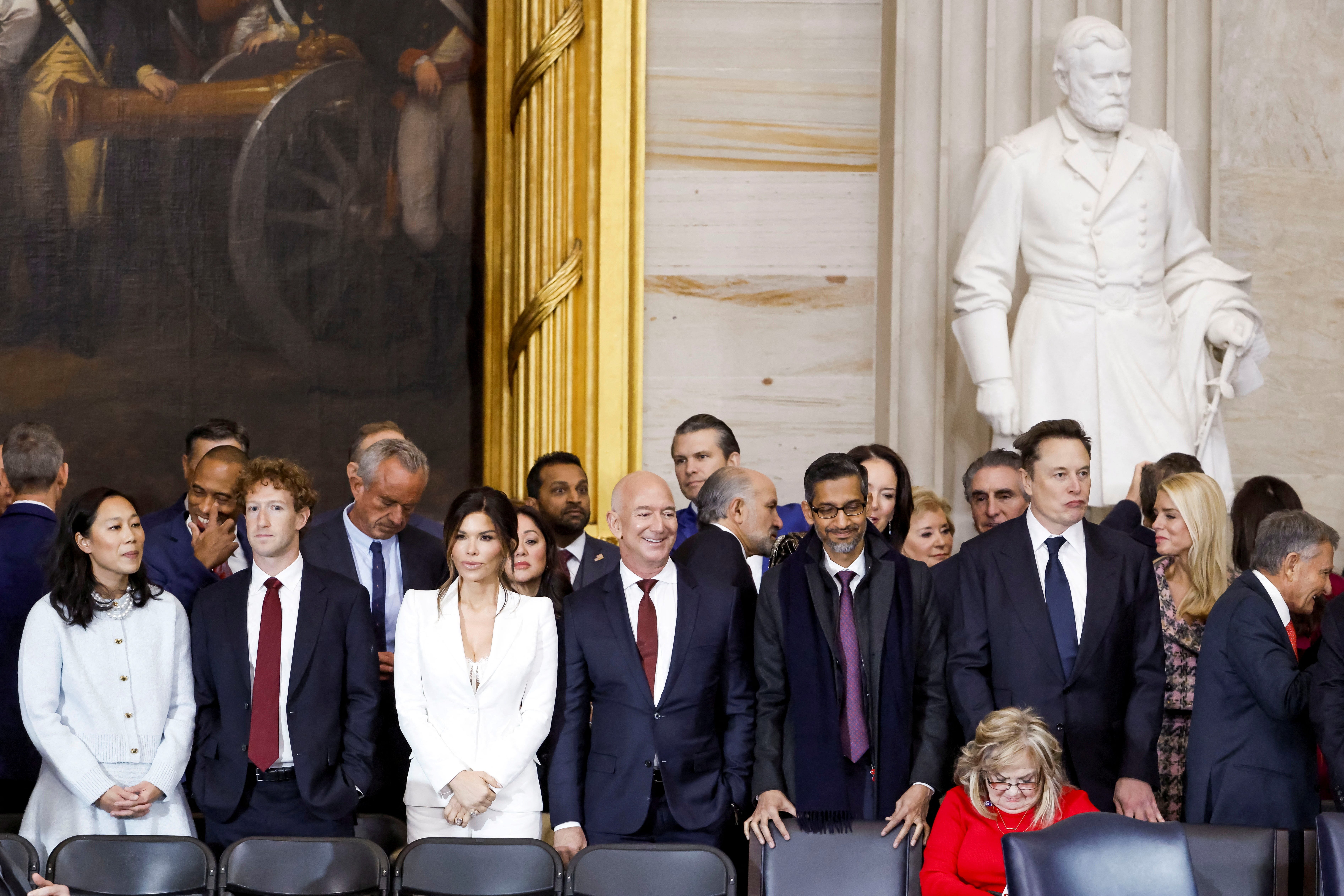
SHAWN THEW/via REUTERS
Some of the biggest tech leaders tried to get in President Donald Trump‘s good graces before he took office for a second time, meeting with him at his Mar-a-Lago resort and snagging prime spots at Trump’s inauguration.
A few months into his presidency, many of those tech leaders are now dealing with tariffs and other disruptive policies, like immigration restrictions and funding cuts, that could impact their bottom lines.
At the time of writing, Trump had exempted many electronics from the harshest levies on China and instead said they would be moved to a different tariff “bucket” in the future. Yet other tariffs have caused US CEOs to pause spending and hiring, and they could make it more expensive to build AI data centers.
The stocks of all publicly listed companies included here have dropped since the inauguration, as has the benchmark Standard & Poor’s 500 index and the tech-heavy Nasdaq Composite.
Darrell West, a senior fellow in the Center for Technology Innovation at the nonpartisan Brookings Institution, said some of the tech leaders have “probably been disappointed.”
“The tech leaders had a buddy-buddy relationship with Trump early in the administration, but since then, it has been a rocky road,” he said. Moving forward, he anticipates that tech leaders will still try to remain close to Trump, even if it doesn’t guarantee returns.
“The fact that he meets with CEOs does not mean that he follows the advice they give him,” he said.
Here’s where some of the biggest tech leaders — and their companies — stand with the president now.
Representatives for Meta, Nvidia, and Amazon declined to comment to Business Insider. Representatives for the White House and other companies did not respond to a request for comment from BI.
Elon Musk: Tesla, SpaceX, xAI, X, Boring Company, Neuralink
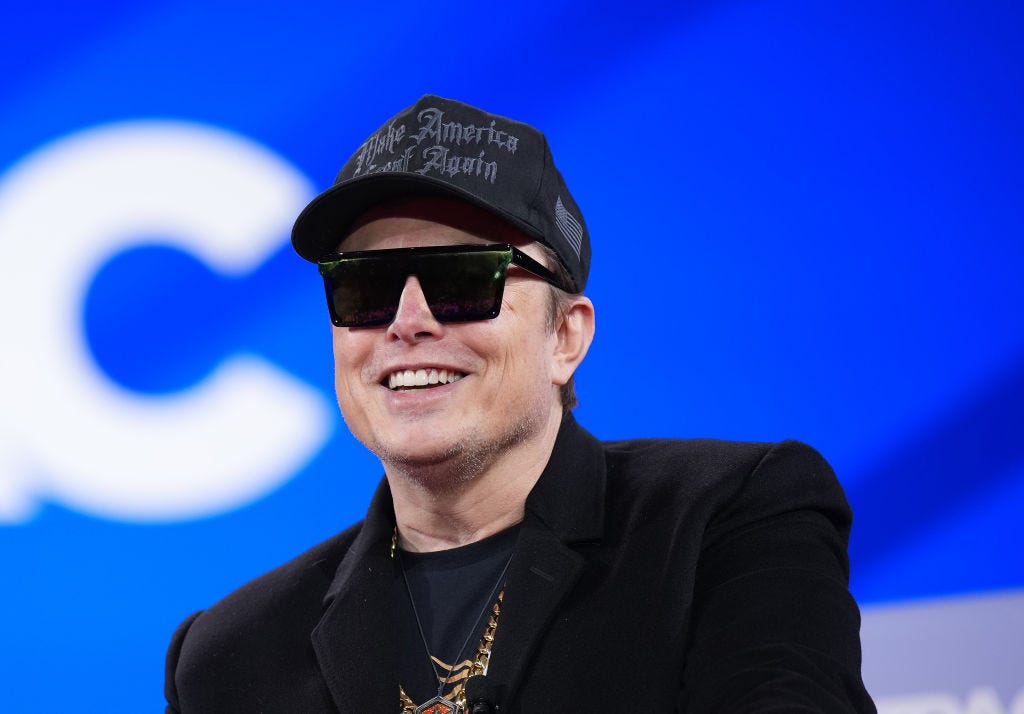
Andrew Harnik/Getty Image
Elon Musk spent at least $277 million backing Trump and Republicans during the election, has influenced policy and personnel decisions, and is the face of the White House DOGE Office — for now.
The world’s richest man has remained close to the president in the months since, but his involvement in Washington seems to be waning. Americans are souring on his political involvement, according to public opinion polls, and he has been viewed by some as a political liability. During a Tesla earnings call in April, Musk announced that he would be stepping back from DOGE and devoting more time to Tesla.
Tesla has suffered since Trump took office due to a widespread protest movement and plummeting sales. Musk has publicly criticized Trump’s tariffs but said on the earnings call that Tesla is generally “the least affected car company” when it comes to levies. SpaceX could also benefit from new government contracts.
Other than Tesla, Musk’s companies are privately held.
Mark Zuckerberg: Meta
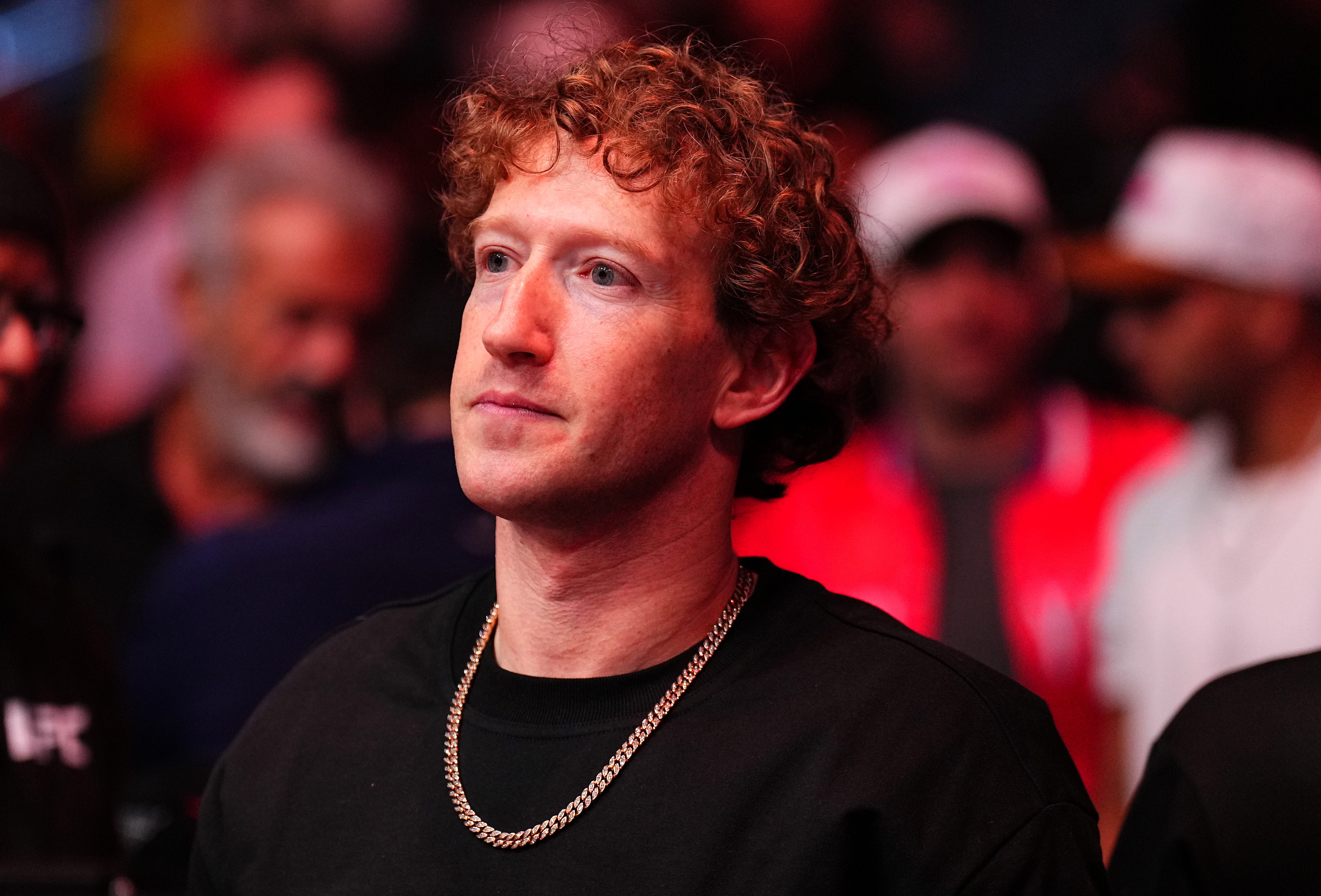
Chris Unger/Zuffa LLC via Getty Images
Mark Zuckerberg and Trump have a tumultuous history, but the Facebook founder has recently tried to patch things up. The Meta CEO called Trump a “badass” before the election and ended fact-checking on Meta platforms. The company donated $1 million to the inaugural committee.
Court proceedings recently began in the Federal Trade Commission’s blockbuster trial against Meta. The government is trying to force Meta to sell Instagram and WhatsApp, arguing that the company operates as an illegal monopoly. Zuckerberg was the first witness and testified for hours.
Before the trial, Zuckerberg tried to have the suit dismissed. The FTC asked for $30 billion to settle, but Zuckerberg offered only about $1 billion, according to The Wall Street Journal.
Meta could also take a hit from tariffs, since Chinese advertisers buy ads on its platforms. The company could lose $7 billion in ad revenue, the Journal reported.
Sundar Pichai: Alphabet
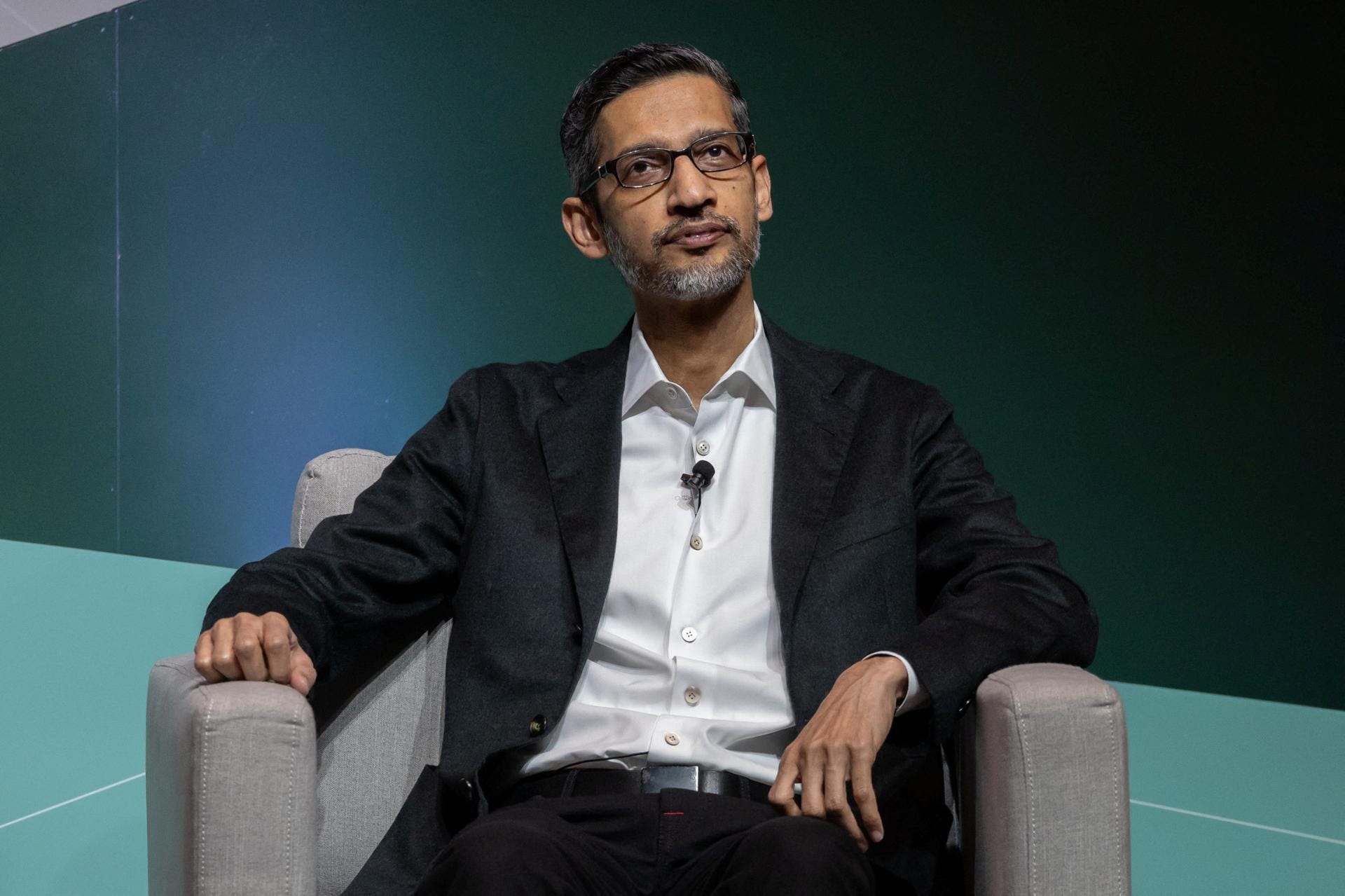
Getty Images
Alphabet CEO Sundar Pichai visited Trump at Mar-a-Lago after the election, and Google donated $1 million to the inauguration fund.
The company hasn’t been spared from lawsuits — in April, the Department of Justice kicked off a remedy hearing for Google, where it will decide the company’s fate after a previous ruling that it’s a monopoly. One proposed solution is separating Chrome, Google’s flagship search engine. Google has said it intends to appeal the case, and an executive said in a blog post that the DOJ’s proposed solutions are “unnecessary and harmful.”
Alphabet, Google’s parent company, reported first-quarter earnings on April 24 and exceeded initial revenue expectations despite market volatility.
Jensen Huang: Nvidia
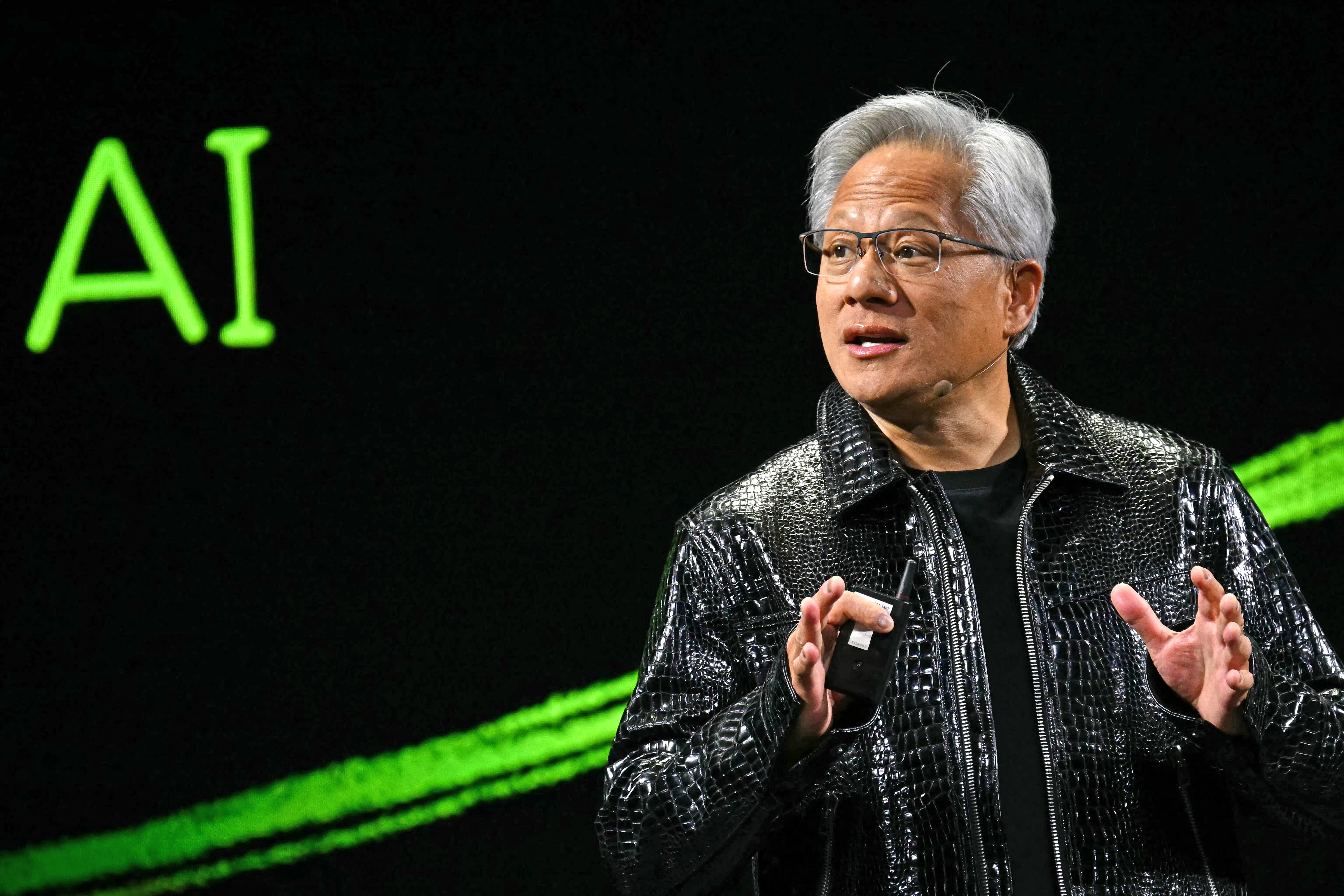
Patrick T. Fallon / AFP
Unlike many of his counterparts, Nvidia CEO Jensen Huang did not attend Trump’s inauguration. He spent the day celebrating Lunar New Year with employees in Asia. He met with Trump shortly after, however, and Nvidia donated $1 million to the inaugural committee.
The chipmaker sources many of its semiconductors abroad, primarily in Taiwan, making the trade environment tricky. Yet in a March interview with CNBC, Huang sounded relatively calm about tariffs, saying that he’s “enthusiastic” about building in the US and that “in the near term, the impact of tariffs won’t be meaningful.”
Morgan Stanley said in April that Nvidia was still its “top pick” in the market.
Tim Cook: Apple
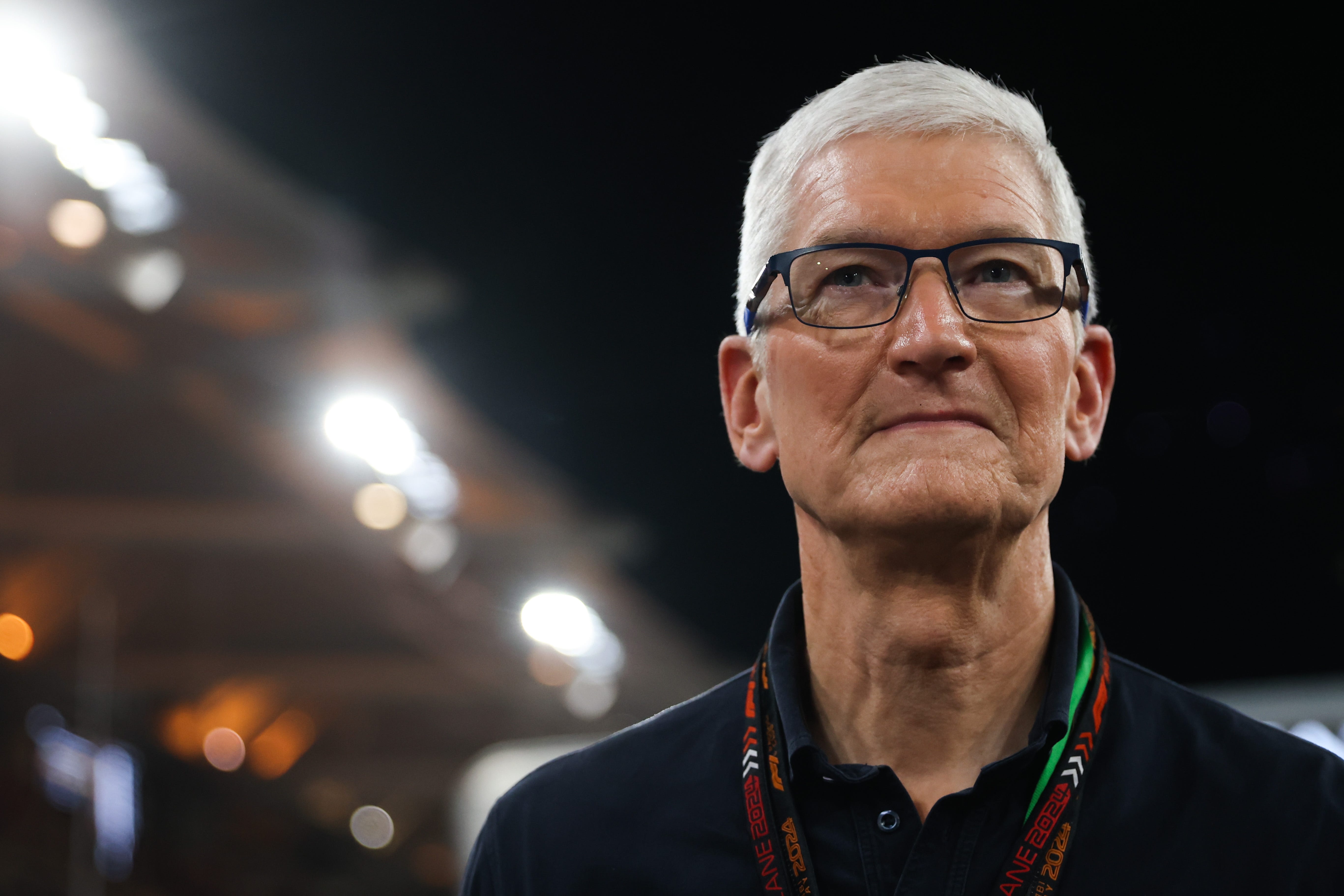
Beata Zawrzel/NurPhoto via Getty Images
Apple CEO Tim Cook personally donated $1 million to the inaugural committee and attended the event. He also had dinner with Trump at Mar-a-Lago after the election.
Apple is vulnerable to tariffs as the company manufactures many of its products in China. Analysts predicted that the original tariffs could massively drive up iPhone prices; It remains unclear exactly how prices will change in the fluctuating trade environment. The company is ramping up production in India.
Democratic Sen. Elizabeth Warren of Massachusetts sent Cook a letter asking for more information about his reported efforts to get specific tariff exemptions. She wrote that they “raise fresh concerns” about corporations’ abilities to “gain special favors.”
Jeff Bezos: Amazon
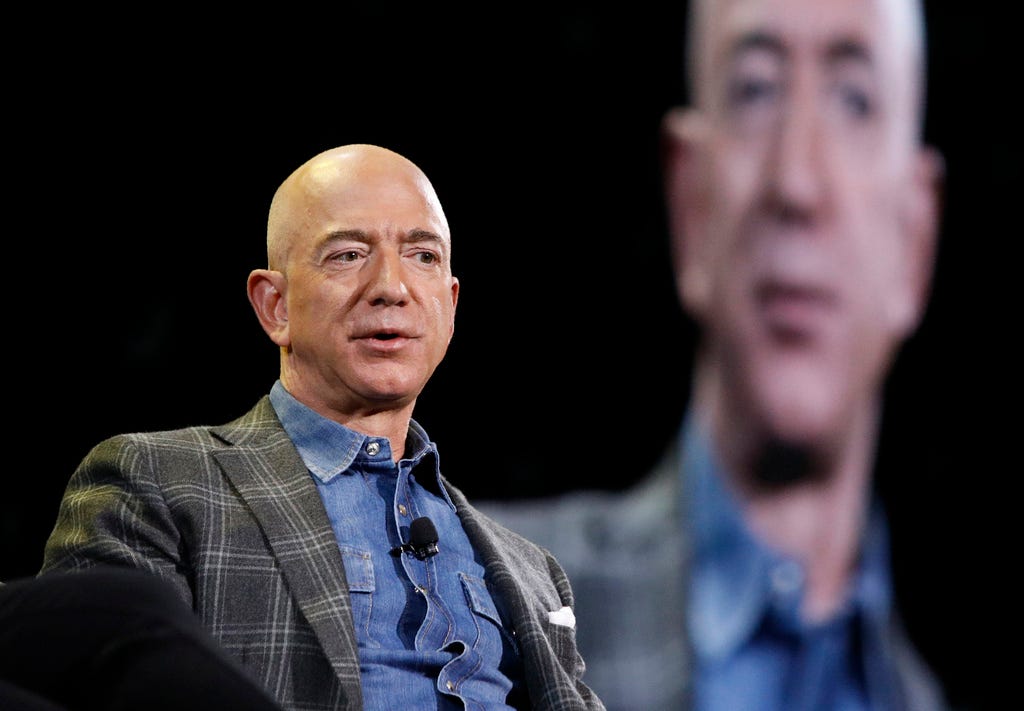
AP Photo/John Loche
In addition to his role as the founder and executive chairman of Amazon, Bezos also owns The Washington Post. During the most recent election, he sparked controversy by deciding that the WaPo wouldn’t endorse a candidate.
After Trump won, Bezos had dinner with Trump and Musk at Mar-a-Lago. Amazon donated $1 million to the president’s inaugural committee, and Bezos and his fiancée attended the inauguration.
Amazon is facing an ongoing antitrust lawsuit from the FTC and tariffs look set to affect it. Some Amazon sellers have had to raise prices, though a representative for the company previously told BI only a “tiny fraction of items in our store” have been impacted.
Shou Zi Chew: TikTok
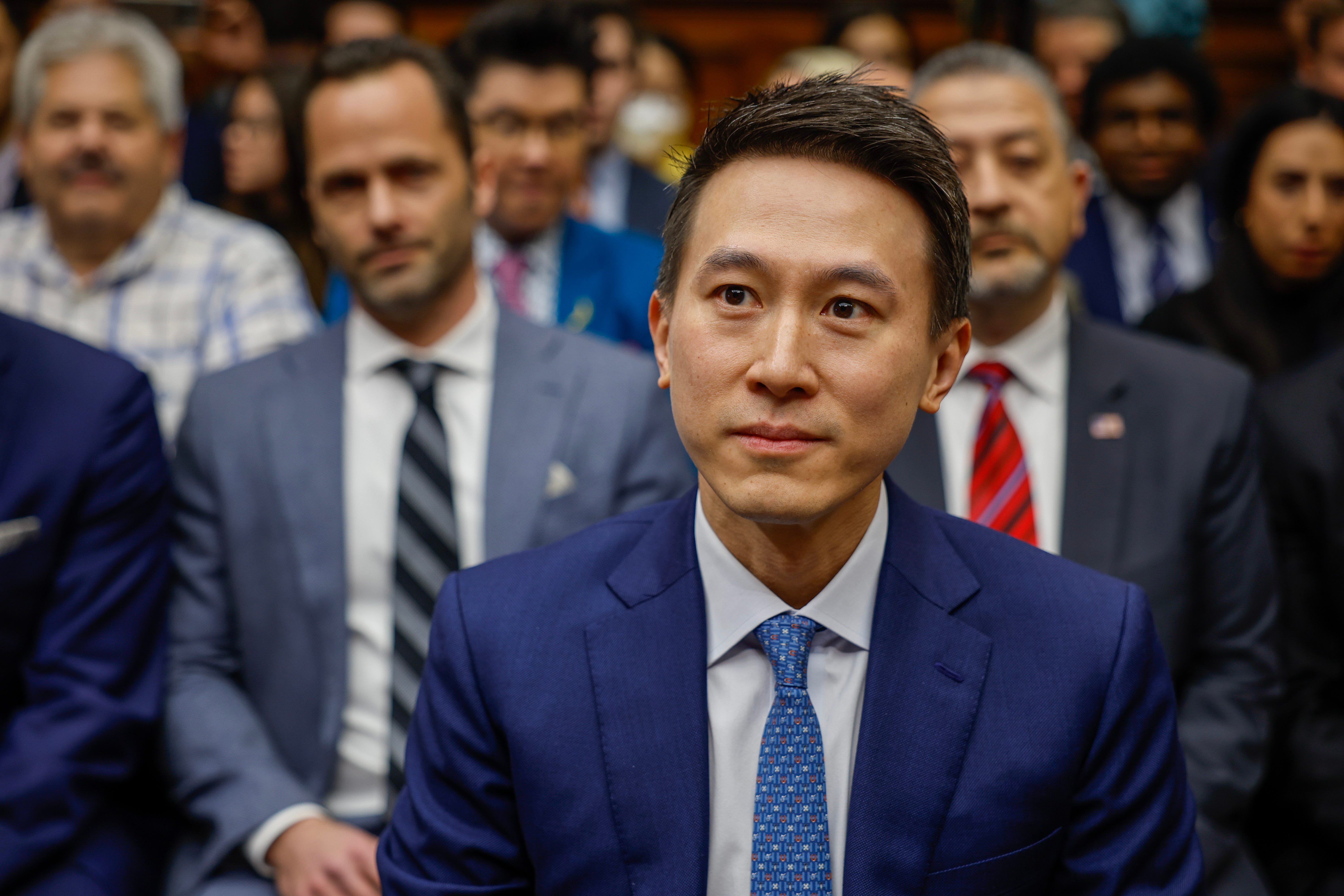
Chip Somodevilla via Getty Images
TikTok is running up against the clock — Trump has repeatedly paused enforcement of a US ban to try and broker a deal with potential bidders for the company in America.
CEO Shou Zi Chew, the company’s CEO, met with Trump in December and attended the inauguration. TikTok spent $50,000 on an inauguration party for Gen Z and influencers that helped spread the president’s campaign message. The app’s future remains uncertain.
TikTok is owned by ByteDance, a privately owned Chinese company.
Sam Altman: OpenAI
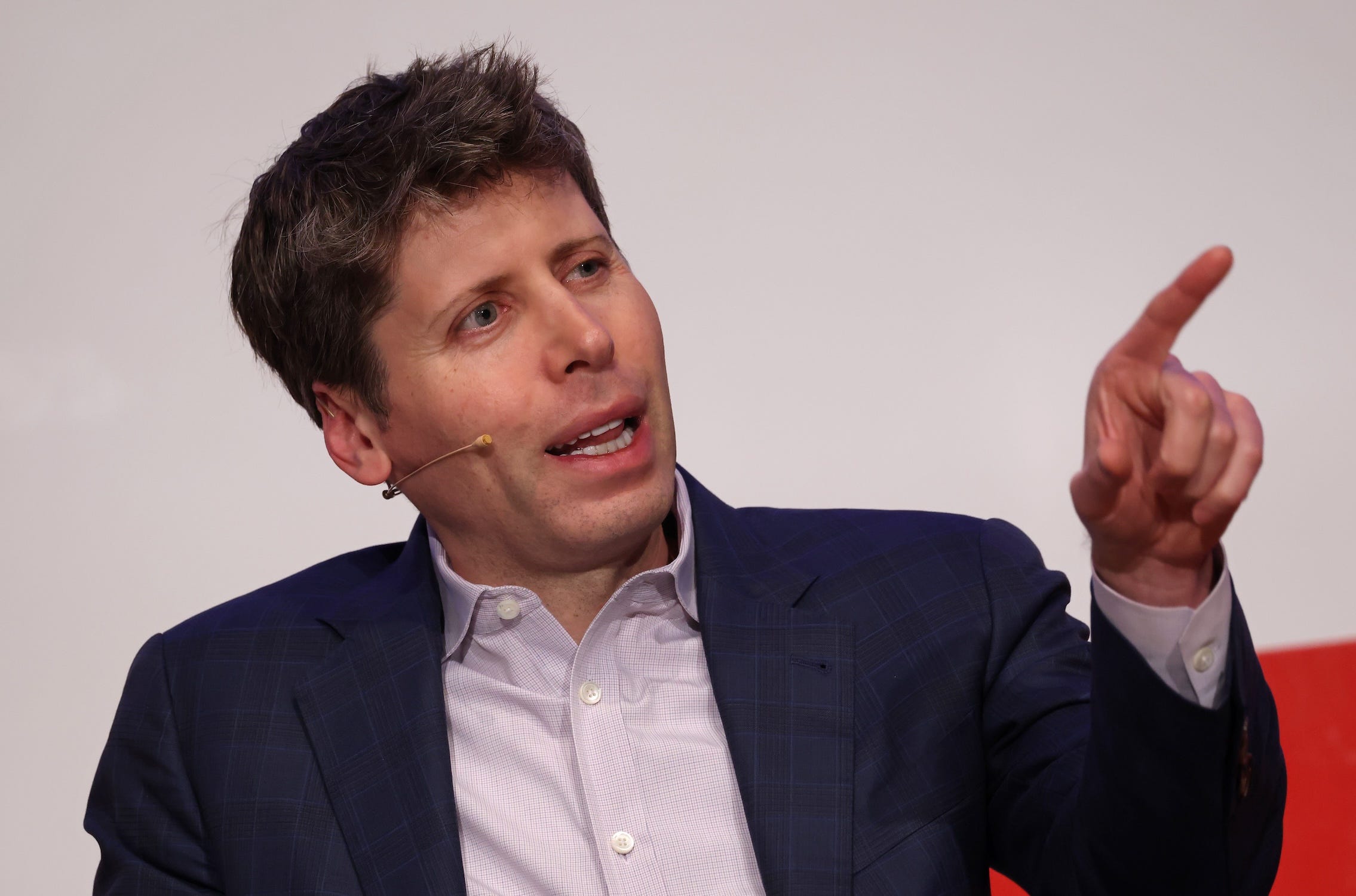
Sean Gallup/Getty Images
OpenAI CEO Sam Altman personally gave $1 million to Trump’s inaugural fund and attended the event. He also visited the White House early in Trump’s term to announce Stargate, a $500 billion private-sector AI infrastructure investment that spurred a public spat with Musk.
The company gave the White House recommendations for an “AI Action Plan” due to be submitted to Trump in July and advocated for a light regulatory environment.
OpenAI is a privately held company. At the end of March, it announced a new funding round that put its valuation at $300 billion.
Satya Nadella: Microsoft
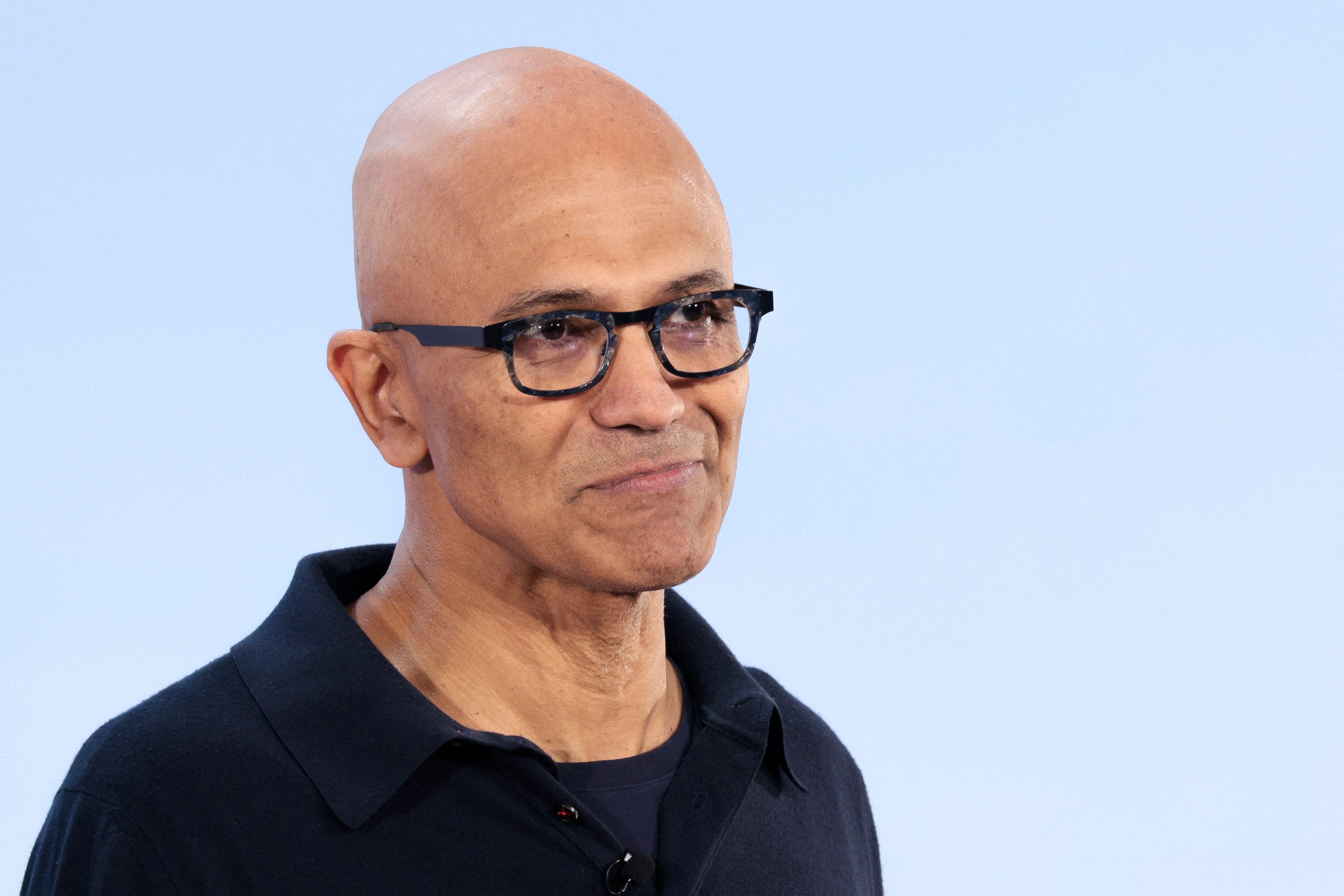
Jason Redmond / AFP/ Getty Images
Microsoft CEO Satya Nadella didn’t attend Trump’s inauguration but did congratulate him online, like many other tech leaders. Microsoft donated $1 million to the inaugural fund.
The post Tech billionaires courted Trump ahead of his return to office. Here’s how their relationships have changed since. appeared first on Business Insider.




